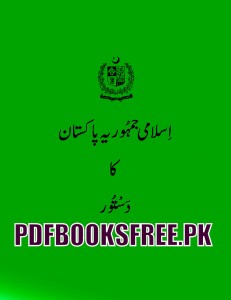This constitutional cornerstone delineates the system of governance, elucidating the roles and powers of various state institutions, including the executive, legislative, and judicial branches. It enshrines the rights, freedoms, and responsibilities of Pakistani citizens, establishing a framework for the country’s functioning and societal conduct.
At its core, this document reflects Pakistan’s commitment to Islamic principles while ensuring a democratic and egalitarian society. It’s a testament to the nation’s identity, aligning its governance with the values of justice, equality, and the rule of law.
The Constitution of 1973 has undergone revisions and amendments over time, adapting to the evolving needs and aspirations of the Pakistani people. These revisions aim to uphold the fundamental rights of individuals, promote social justice, and maintain a balance of power among governmental bodies.
The availability of an updated version of this document in Urdu as a high-quality PDF is a commendable resource. It offers accessibility to all who wish to comprehend the legal framework that governs Pakistan, serving as a reference for students, scholars, legal professionals, and citizens interested in understanding the country’s laws and governance structure.
Studying this constitution provides invaluable insights into the historical, political, and societal contexts that shaped Pakistan. It elucidates the ideals upon which the nation was founded and the vision for its future progress and prosperity.
In essence, the “Islami Jamhooria Pakistan ka Dastur 1973” represents more than a legal document; it embodies the collective aspirations and principles that define the Pakistani nation, serving as a beacon guiding the country toward a just, equitable, and prosperous future.

